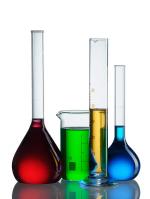|
This section contains 3,588 words (approx. 12 pages at 300 words per page) |

|
After physics, chemistry is often considered the paradigmatic modern science. The ethical issues associated with chemistry and chemical technologies have nevertheless been more diffuse and less systematically identified than those related to either physics or biology, although the ethical issues associated with chemistry—from worker and consumer safety to environmental pollution, in both public and private contexts, in peace and war—are as broadly present in daily life as those in any other science. The very proliferation of chemistry into analytical chemistry, biochemistry, geochemistry, inorganic and organic chemistry, physical chemistry—not to mention atmospheric, computational, electro-, polymer, and other forms of chemistry—emphasizes the ubiquitousness of this particular science, its technological dimensions, and thus its range of potential ethical and political engagements.
Historical Emergence
The history of chemistry may be divided into three periods: (1) alchemy (from the beginnings of Muslim and Christian knowledge of the subject until the...
|
This section contains 3,588 words (approx. 12 pages at 300 words per page) |

|


